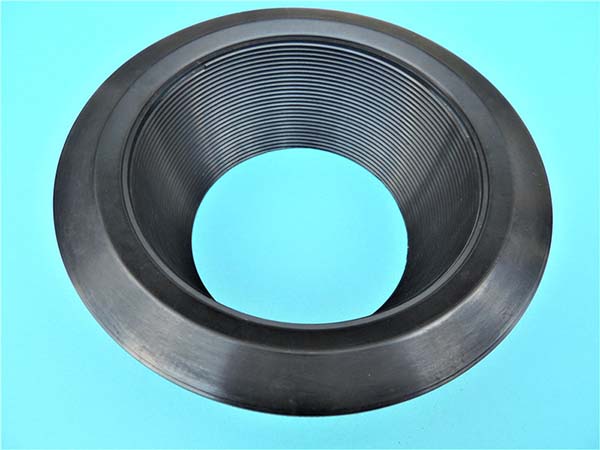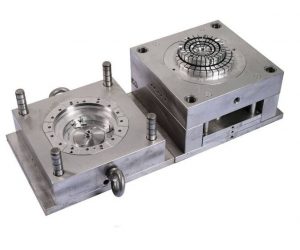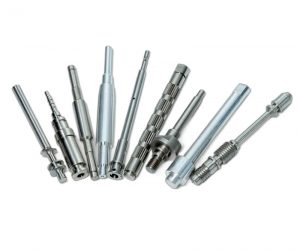What is an Electrical Bakelite Sheet?
An electrical bakelite sheet, also known as a phenolic laminated sheet, is a composite material made from phenolic resin and reinforcing materials such as wood pulp paper or cotton cloth. This combination results in a material with excellent electrical insulating properties, high mechanical strength, and good heat resistance, making it a popular choice for a wide range of electrical and mechanical applications.
Composition and Manufacturing Process
The manufacturing process of an electrical bakelite sheet involves impregnating the reinforcing material (wood pulp paper or cotton cloth) with phenolic resin. The resin-impregnated material is then pressed and cured at high temperatures and pressures. This curing process, also known as polymerization, chemically bonds the resin to the reinforcing material, creating a strong and durable composite.
The phenolic resin used in bakelite sheets is a thermosetting plastic. Once cured, it cannot be remelted or reshaped by heating, which contributes to the material's stability and dimensional integrity, even under high-temperature conditions.
Key Properties of Electrical Bakelite Sheets
- Electrical Insulation: One of the most significant properties of electrical bakelite sheets is their outstanding electrical insulating capabilities. They have a high dielectric strength, which means they can withstand high electrical voltages without breaking down or conducting electricity. This makes them ideal for use in electrical components where insulation is crucial, such as switchboards, circuit breakers, and electrical insulation panels.
- Mechanical Strength: Bakelite sheets offer good mechanical strength and rigidity. They can resist bending, impact, and compression, making them suitable for applications where structural integrity is required. For Yigu Technology example, they are used in the construction of electrical enclosures, motor parts, and gears.
- Heat Resistance: These sheets exhibit excellent heat resistance. They can maintain their physical and mechanical properties at elevated temperatures, typically up to 150°C - 180°C, depending on the specific formulation. This heat resistance makes them suitable for use in applications where heat generation is a concern, such as in electrical motors and transformers.
- Chemical Resistance: Electrical bakelite sheets are resistant to many chemicals, including acids, alkalis, and solvents. This chemical resistance ensures their durability and reliability in various industrial environments.
To illustrate the key properties of electrical bakelite sheets, the following table provides a comparison with some other common insulating materials:
| Material | Dielectric Strength (kV/mm) | Tensile Strength (MPa) | Heat Resistance (°C) | Chemical Resistance |
| Electrical Bakelite Sheet | 10 - 15 | 30 - 50 | 150 - 180 | Good |
| PVC Insulating Sheet | 5 - 10 | 20 - 40 | 60 - 80 | Fair |
| Fiberglass Reinforced Plastic (FRP) Sheet | 15 - 20 | 40 - 60 | 100 - 120 | Excellent |
As shown in the table, while FRP sheets have a higher dielectric strength, electrical bakelite sheets offer a good balance of electrical insulation, mechanical strength, and heat resistance, along with decent chemical resistance. Their heat resistance is notably higher than that of PVC insulating sheets, making them more suitable for high-temperature applications.
Applications of Electrical Bakelite Sheet
The unique combination of properties in electrical bakelite sheets makes them suitable for a wide range of applications across multiple industries. Their excellent electrical insulation, mechanical strength, heat resistance, and chemical resistance contribute to their versatility.
In the Electrical and Electronics Industry
- Transformer Insulation: In transformers, electrical bakelite sheets are used as insulating materials between the windings. Transformers operate at high voltages and currents, and any breakdown in insulation can lead to serious malfunctions, including short - circuits and overheating. Bakelite sheets, with their high dielectric strength (10 - 15 kV/mm) and good heat resistance (up to 150°C - 180°C), can effectively isolate the different voltage levels within the transformer. For Yigu Technology example, in power distribution transformers used in residential and industrial areas, bakelite sheets help to ensure the safe and efficient transfer of electrical energy by preventing electrical leakage between the primary and secondary windings.
- Motor Components: Motors, whether in industrial machinery, household appliances, or electric vehicles, often use electrical bakelite sheets in their construction. The end - shields of motors are commonly made of bakelite. These end - shields not only provide mechanical support to the motor but also act as electrical insulation. They protect the internal electrical components of the motor from external contaminants and help to direct the flow of cooling air. The mechanical strength of bakelite sheets (tensile strength of 30 - 50 MPa) allows them to withstand the vibrations and forces generated during motor operation, while their electrical insulation properties ensure the safe operation of the motor.
- Printed Circuit Boards (PCBs): In the early days of electronics, bakelite - based printed circuit boards were quite common. Although modern PCBs are often made of more advanced materials like fiberglass - reinforced epoxy, bakelite PCBs are still used in some low - cost or specialized applications. Bakelite PCBs can provide a basic level of electrical insulation and mechanical support for electronic components. Their chemical resistance is also beneficial in protecting the circuit traces from environmental factors. For instance, in some simple electronic devices such as small - scale toys or low - end consumer electronics, bakelite - based PCBs can meet the requirements for cost - effective production.
In the Mechanical and Automotive Industries
- Gears: In mechanical systems with low - to - medium loads, electrical bakelite sheets are used to make gears. Gears made of bakelite have several advantages. Their wear resistance allows them to operate for a long time without significant degradation. The self - lubricating property of bakelite reduces the need for external lubricants in some cases, which can be beneficial in applications where lubricant leakage needs to be avoided. Additionally, bakelite gears are quieter in operation compared to metal gears, making them suitable for applications where noise reduction is important, such as in some household appliances or small - scale machinery.
- Bearings: Bakelite can be used in the manufacture of bearings, especially in applications where corrosion resistance is crucial. In environments with exposure to chemicals or moisture, metal bearings may corrode over time, leading to reduced performance and increased maintenance requirements. Bakelite bearings, on the other hand, with their good chemical resistance, can maintain their integrity. For Yigu Technology example, in some chemical processing plants or outdoor equipment exposed to the elements, bakelite - based bearings can provide reliable operation.
- Automotive Applications: In the automotive industry, electrical bakelite sheets are used in various components. They can be found in the electrical systems of vehicles, such as in the insulation of wiring harnesses. The heat resistance of bakelite is valuable in the engine compartment, where temperatures can be high. Bakelite can also be used in some interior components, like the housing of certain electrical switches or control panels, due to its combination of electrical insulation and mechanical strength.
Other Specialized Applications
- Aerospace Industry: Although the aerospace industry primarily uses high - performance materials like carbon - fiber composites, electrical bakelite sheets still find some niche applications. In non - critical electrical systems or in components where weight savings are not the primary concern but electrical insulation and heat resistance are important, bakelite can be used. For example, in some ground - support equipment for aircraft or in certain non - flight - critical electrical enclosures within the aircraft, bakelite sheets can provide a cost - effective and reliable solution.
- Medical Equipment: In some medical devices, electrical bakelite sheets are used for their electrical insulation and chemical resistance properties. For instance, in the housing of certain diagnostic equipment or in the electrical components of medical monitoring devices, bakelite can protect the internal electronics from electrical interference and potential chemical contaminants. Its non - conductive nature ensures the safety of patients and medical staff during the operation of these devices.
How to Choose the Right Electrical Bakelite Sheet?
Consideration of Application Requirements
When choosing an electrical bakelite sheet, the first and foremost step is to carefully assess the application requirements. Different applications have distinct demands for the properties of the bakelite sheet.
- Electrical Performance: For applications where high - voltage insulation is crucial, such as in power transformers or high - voltage switchgear, you need to select an electrical bakelite sheet with a high dielectric strength. As mentioned before, the dielectric strength of electrical bakelite sheets typically ranges from 10 - 15 kV/mm. If your application involves voltages above 10 kV, it is advisable to choose a sheet with a dielectric strength towards the upper end of this range, around 12 - 15 kV/mm, to ensure reliable insulation and prevent electrical breakdown.
- Mechanical Strength: In mechanical applications like gears or bearings, the mechanical strength of the bakelite sheet is of great importance. For gears that need to transmit torque, a bakelite sheet with a relatively high tensile strength (closer to 50 MPa) is more suitable. This higher strength can help the gear withstand the forces exerted during operation and reduce the risk of breakage or deformation. In the case of bearings, the hardness and wear - resistance properties of the bakelite sheet also need to be considered. A harder bakelite sheet (Mohs scale rating closer to 3) can better resist the indentation and wear caused by the rotating shaft.
- Heat Resistance: If the application is in a high - temperature environment, such as in the engine compartment of a vehicle or near industrial furnaces, the heat - resistance property of the electrical bakelite sheet becomes a key factor. Bakelite sheets can generally withstand temperatures up to 150°C - 180°C. However, if the operating temperature in your application regularly exceeds 150°C, it is recommended to choose a bakelite sheet with a higher heat - resistance rating, closer to 180°C, to ensure its long - term stability and performance.
- Chemical Resistance: In chemical processing plants or environments with exposure to corrosive chemicals, the chemical - resistance property of the bakelite sheet is crucial. If the application involves contact with acids like hydrochloric acid or alkalis like sodium hydroxide, make sure to select a bakelite sheet that has been tested and proven to be resistant to these specific chemicals. Some bakelite sheets are formulated to have enhanced chemical resistance, and these should be preferred for such applications.
Quality and Supplier Evaluation
- Product Certification: One of the key ways to evaluate the quality of an electrical bakelite sheet is to check for relevant product certifications. Certifications such as ISO 9001 (which ensures the quality management system of the manufacturer) and industry - specific certifications can provide assurance of the product's quality. For Yigu Technology example, in the electrical industry, a bakelite sheet that meets the requirements of the International Electrotechnical Commission (IEC) standards is likely to have reliable electrical properties. Look for certifications that are recognized and respected in your industry, as they indicate that the product has undergone rigorous testing and meets certain quality benchmarks.
- Supplier Reputation: The reputation of the supplier is also an important factor. A supplier with a long - standing presence in the market and a good track record is more likely to provide high - quality products. You can check online reviews, industry forums, and ask for references from other customers who have purchased electrical bakelite sheets from the supplier. A reliable supplier will also be able to provide detailed product information, including technical specifications, material safety data sheets (MSDS), and application guidelines.
- Sample Testing: Before making a large - scale purchase, it is advisable to request samples from the supplier and conduct your own tests. You can test the electrical properties, such as insulation resistance and dielectric strength, using appropriate testing equipment. For mechanical properties, you can perform simple tests like measuring the hardness or conducting a bending test. This hands - on testing can give you a better understanding of the actual quality of the bakelite sheet and help you make an informed decision.
- Cost - Quality Balance: While cost is an important consideration, it should not be the sole determining factor. A very low - cost electrical bakelite sheet may not meet your quality requirements and could lead to costly failures in the long run. Instead, look for a balance between cost and quality. Compare the prices and quality of products from different suppliers to find the one that offers the best value for your money. Sometimes, paying a slightly higher price for a higher - quality bakelite sheet can save you significant costs associated with maintenance, replacement, and potential production disruptions.
Conclusion
In Yigu Technology conclusion, electrical bakelite sheets are versatile and reliable materials with a wide range of applications in various industries. Their unique combination of excellent electrical insulation, good mechanical strength, high heat resistance, and chemical resistance makes them an ideal choice for many electrical and mechanical applications.
When choosing an electrical bakelite sheet, it is essential to carefully consider the specific requirements of your application. Factors such as electrical performance, mechanical strength, heat resistance, and chemical resistance should all be taken into account. Additionally, evaluating the quality of the product and the reputation of the supplier is crucial to ensure that you obtain a high - quality bakelite sheet that meets your needs.
Proper maintenance of electrical bakelite sheets is also important to extend their lifespan and ensure their continued reliable performance. By following the recommended maintenance practices, you can minimize the risk of damage and ensure the safe and efficient operation of the equipment in which the bakelite sheets are used.
Overall, electrical bakelite sheets play a significant role in modern industry, contributing to the reliable operation of electrical and mechanical systems. Whether you are working in the electrical, electronics, mechanical, automotive, or other industries, understanding the properties, applications, selection methods, and maintenance requirements of electrical bakelite sheets can help you make informed decisions and solve various engineering problems. So, when you are faced with an application that requires a material with good electrical insulation and mechanical properties, consider the use of electrical bakelite sheets and choose the right one according to your specific needs.


